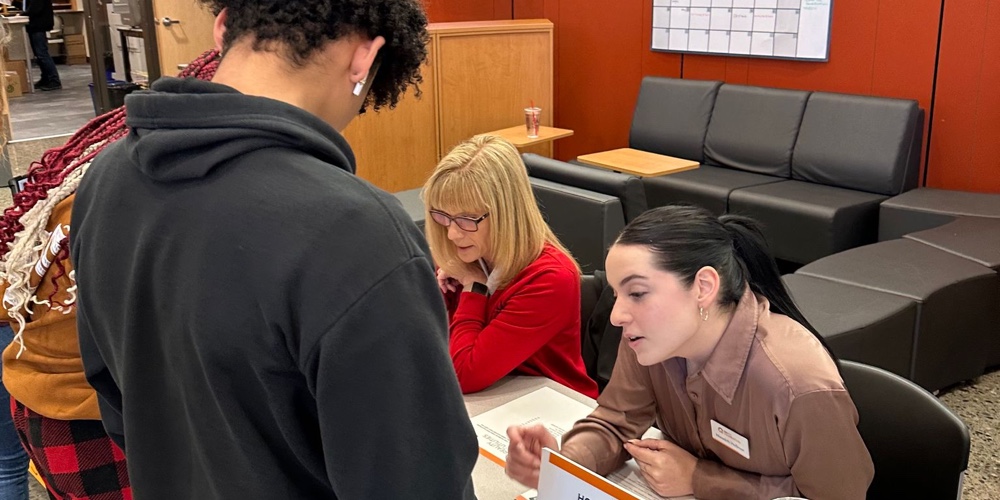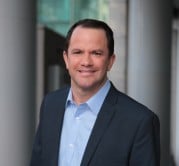2024: The year of the not-for-profit financial cooperative

As we begin 2024, credit unions are poised to embrace the opportunity to support their members. There’s no doubt that credit unions are pillars of strength and resilience, both to their members and the communities they serve, and this year will be no different. While much attention is given to things like the global economy, inflation and interest rates, and the 2024 election cycle, credit unions remain steadfast and reliable financial leaders.
As not-for-profit financial cooperatives, credit unions exist to serve our members and our communities to offer financial well-being for all. That also translates into practical, savvy business solutions that help bring economic life into communities.
As leaders in their communities and conveners of collaborations, credit unions are uniquely poised to help develop practical solutions to the challenges of the times. From groundbreaking homeownership programs, to serving underserved communities, to financial education programs, to community partnerships that help drive local economies, the collaboration of the credit union model goes far beyond transactional financial services. Credit unions are not just financial institutions, credit unions are pillars of hope and strength for our communities.
Affordable housing is crucial
The critical issue of affordable housing is an area where credit unions in the GoWest region have made significant inroads. Collaboration among credit unions, coupled with community partnerships, have created unique and practical opportunities to help provide options for underserved communities.
An example of this is taking shape in King County, Washington thanks to several area credit unions. Copper Way, a 256-unit building in Spanaway, is under construction. The project was financed by four credit unions — BECU, Sound Credit Union, Verity Credit Union, and WSECU — as well as the Evergreen Impact Housing Fund. It will provide housing for families that earn 60% of the area’s median income or less.
Additionally, credit unions in Tucson have convened with the GoWest Foundation to explore the possibilities to help impact housing challenges in the area. Affordable workforce housing is a significant need, and credit unions in the area are working together to bring the right partners to the table to offer tangible solutions.
Several credit unions in the GoWest region partnered with the GoWest Foundation and received grants from the Federal Home Loan Bank of Des Moines Member Impact Fund. The 2023 Member Impact Fund matched more than $2 for every $1 of an eligible FHLB Des Moines member’s grant donation to strengthen the ability of not-for-profits or government entities to serve the affordable housing or community development needs of their communities. This kind of program, coupled with collaborations from other community organizations, helps strengthen the ability of not-for-profits or government entities to serve the affordable housing or community development needs of their communities. Again, credit unions are leading the way.
Providing essential financial education
Credit unions have long recognized the importance of Financial Education. Over the years, this essential life skill has disappeared from the curriculum in public education. Credit unions have been doing incredible work for years, stepping in to fill the gap, offering programs and services to help members and their communities gain essential skills from balancing a checkbook, to managing a household budget, to planning for their financial future.

Credit unions in the GoWest region have an incredible resource available to them. The ‘Bite of Reality” app-based program provides real-world simulations that guide students through a day-in-the-life of an adult’s financial responsibilities. This real-world 90-minute exercise allows participants to make everyday purchases and decisions on expenses, which impact their budget in real time, giving them a realistic look at money management. More than 53 GoWest member credit unions have accessed the resource.
In addition to their own programs, Oregon’s credit unions have long advocated for financial education in schools. Last year was their year! The subject was on the minds of policymakers, so credit unions seized the moment, partnering with the Oregon Department of Education to integrate financial education into the curriculum as a requirement for high school graduation. Their thorough and precise advocacy efforts turned the discussions into a policy proposal that resonated with legislators on both sides of the aisle. The bill was successful and ultimately was signed into law by the Governor. Looking forward, credit unions are poised to continue their partnership with Oregon schools, solidifying financial education’s place in the curriculum.
The beacon of light
With so much uncertainty in the equation, it’s helpful to remember our mission. While we may think it goes without saying, it bears repeating as we look toward the year ahead. The very principle, the cornerstone on which credit unions were founded, is people helping people.
As not-for-profit cooperatives, credit unions reinvest their earnings into their member-owners, resulting in benefits such as lower interest rates on loans and better savings rates. And these tangible benefits help stimulate economies through members’ increased ability to support local businesses when they buy products or pay for services.
What does that look like amid the landscape of change both economically and politically? It means that credit unions will continue to be fierce advocates for their members and communities. And it means that credit unions will lead conversations and collaborations to create solutions to issues like affordable workplace housing and steady financial planning to help build solid financial foundations that are prosperous and sustainable for the future.
For GoWest Credit Union Association, that means leveraging the power of representing more than 300 credit unions and their 17.4 million members across six states. It means raising our voices to policy makers at Day at the Capitol events in those six states to educate and communicate the impact of credit unions, sharing our priorities. It means bringing a strong contingent of advocates to Washington, D.C. to ensure our elected officials and their staff understand we are the subject matter experts they can tap when considering legislation. It means convening regulatory expertise to protect and create the best possible operating environment. It means collaborating with our peers and community partners to bring much-needed resources and funding to address critical needs such as housing. It means educating and equipping the next generation of credit union leaders to continue the work of the mission.
Time and time again the not-for-profit financial cooperative model of credit unions has proven its merit. Credit unions have demonstrated the inspiration and resiliency necessary to help tackle the opportunities and challenges that come our way. This year will be no different.





